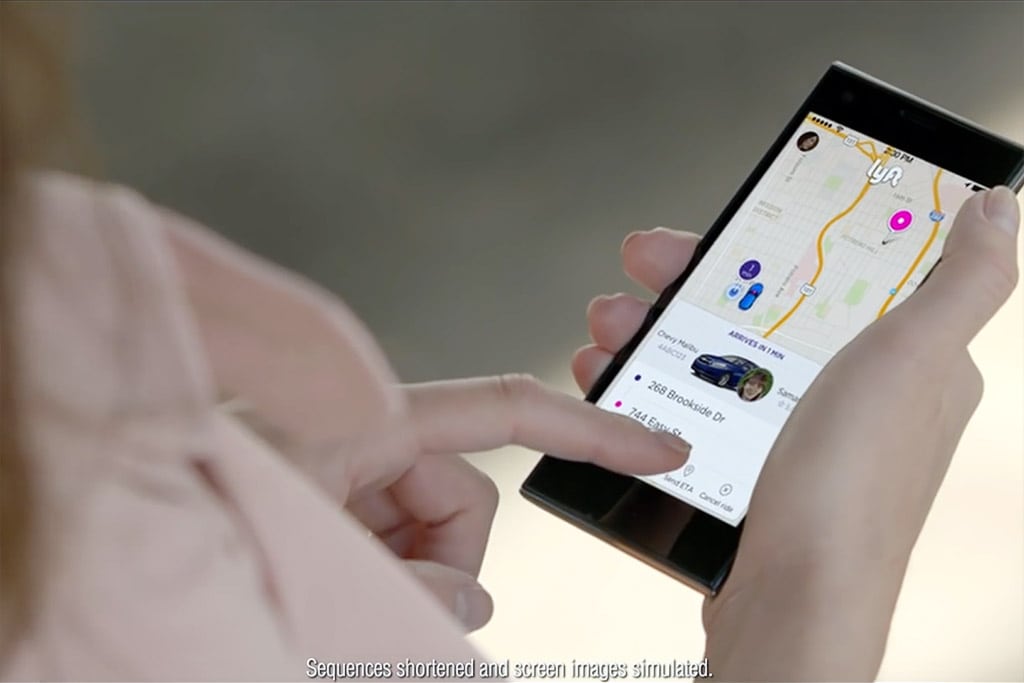Skift Take
Lyft still has lots of ground to cover if it wants to catch up to Uber's business with corporate clients, but the company is smart to get in front of managers who make decisions about employee travel.
When hundreds of travel managers and suppliers attended a conference for corporate travel executives in Dallas recently, the ridesharing company Lyft sent emails in advance offering free trips from the airport.
Lyft was a sponsor of the Association of Corporate Travel Executives event, where the company set up a booth decked out in its signature pink mustaches, participated in a panel on the sharing economy and had its chief sales officer address the several hundred attendees.
The large Lyft presence at the event — and at others geared to business travelers and those who buy or manage travel for companies — shows the company’s growing focus on corporate travel amid efforts at a broader expansion.
“We think that this is very clearly a tight-knit community and that there’s an opportunity to engage with people, understand their requirements, and be able to actually create a very customer-driven roadmap that is driven by their feedback,” David Baga, chief sales officer, said in an interview last week during the Dallas ACTE event.
Just last week, Lyft rolled out to consumers the option of toggling between personal and business profiles within the app. The business profile sends receipts to work email, can be connected to a preferred credit card, and includes space to make a note for reporting purposes. That option was made available to corporate clients starting earlier in the year.
Lyft is integrated with Concur’s expense reporting software and is in talks with other expense systems and travel management companies. Baga said the company is also exploring options for business traveler loyalty programs.
Account managers work with companies to create custom programs based on their needs and volume; Lyft offers direct incentives for employee adoption.
“We are seeing pretty tremendous changes in the corporate travel community from the time that we first really started participating in these kinds of events in the middle of last year to today,” Baga said. “I think people are a lot more open to starting the conversation. Naturally they’re having concerns over the legality of ride sharing, the insurance, a lot of questions about background checks and safety standards. A lot of it is people not really having visibility and understanding what we’ve done.”
To that end, the company offers handouts assuring travel managers about its million-dollar auto insurance policy, background checks for drivers, auto inspections, and other safety features.
“The large corporate accounts have different hurdles around legal, insurance, safety, and as a result we have partnered with them to create custom solutions with them to meet their standards,” Baga said.
The efforts are a continuation of “Lyft for Work,” which was introduced in late 2014 as a way for companies to purchase rides for their employees. Baga wouldn’t release exact numbers but said the company has “thousands of corporate customers, including some of the world’s most recognizable brands from the Fortune 500.”
Lyft’s push into the corporate market comes as the company — which operates in 200 markets and provides more than 11 million rides a month — embarks on a major expansion for all users. This week, it ran its first national TV commercial [below]; in January, the company said it had closed a $1 billion financing round with half the money coming from GM.
Lyft is, of course, a distant second to chief rival Uber, which said late last year that more than 50,000 businesses had enrolled in its Uber for Business service, a number expected to double over the course of the following year.
According to a report from expense management software provider Certify, Uber accounted for more than 43 percent of all ground transportation transactions among its customer base in the first quarter.
But the report showed growth for Lyft, which saw a 44 percent increase in business traveler use from the end of last year to the first quarter of 2016. The company represented nearly 2.5 percent of all ground transportation transactions in the first quarter. After Uber, Rental cars made up 40 percent and taxis the final 14 percent.
“We anticipate Lyft will become a bigger player in the business travel market in 2016,” the report says.
https://www.youtube.com/watch?v=P0GFUN3GrHY
The Daily Newsletter
Our daily coverage of the global travel industry. Written by editors and analysts from across Skift’s brands.
Have a confidential tip for Skift? Get in touch
Tags: corporate travel, ctir, lyft, ride-sharing
Photo credit: Lyft rolled out its first nationwide television commercial this week. Lyft
